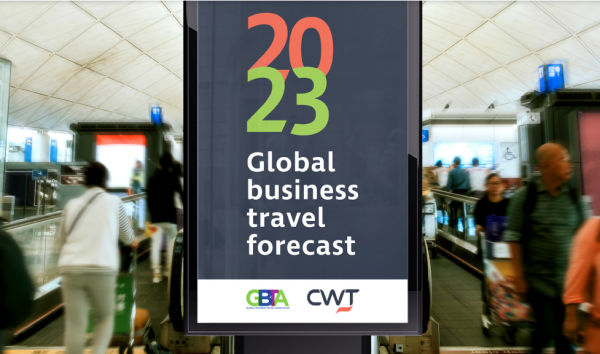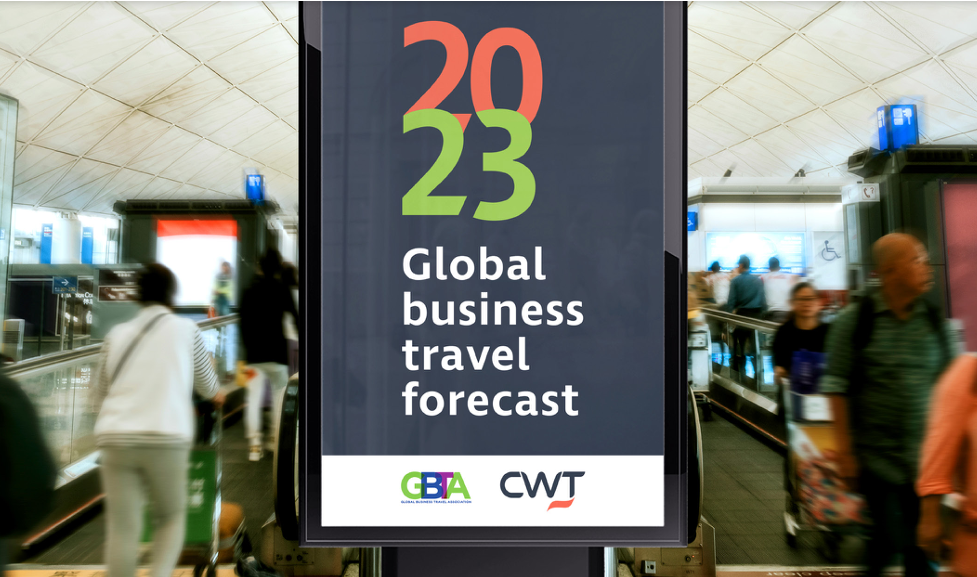SINGAPORE, 16 August 2022: Global travel prices will continue to increase in the remaining months of 2022 and throughout 2023, according to the 2023 Global Business Travel Forecast published last week by CWT.
Key findings show business travellers will see airfares rise by 8.4%, hotel rates by 8.2%, and car rental charges by 6.8% in 2023. This is on top of a predicted full-year 2022 increase in airfares of 48.5%, hotel rates of 18.5%, and car rental charges of 7.3%

The study is a joint venture between CWT, a business travel management platform, and the Global Business Travel Association (GBTA), headquartered in the US.
Rising fuel prices, labour shortages, and inflationary pressures in raw material costs are the primary drivers of the expected price growth, according to the report, which uses anonymised data generated by CWT and GBTA, with publicly available industry information, and econometric and statistical modelling developed by the Avrio Institute.
|
Year-on-year changes in travel pricing |
||||
|
|
(actual) 2020 |
(actual) 2021 |
(estimated) 2022 |
(estimated) 2023 |
|
Airfares |
(12%) |
(26%) |
48.5% |
8.45% |
|
Ground transportation |
(4.9%) |
5.1% |
7.3% |
6.8% |
|
Hotel rates |
(13.3%) |
(9.5%) |
18.5% |
8.2% |
Source: 2023 Annual GBTA Forecast
“Demand for business travel and meetings is back with a vengeance, of that there is no doubt,” said CWT’s chief executive officer Patrick Andersen. “Labour shortages across the travel and hospitality industry, rising raw material prices, and greater awareness for responsible travel are all impacting services, but predicted pricing is, on the whole, on par with 2019.”
Macroeconomic influences
The world economy shrank 3.4% in 2020, one of the worst declines since World War II. Service sectors, including travel and hospitality, were hit especially hard, but the global economy recovered briskly, rising off the lows of 2020 and increasing 5.8% in 2021. Economic growth moderates as the recovery continues, although another recession is a growing concern. The current base case scenario for 2022 is for 3% growth, followed by 2.8% growth in 2023.
Cautionary notes also highlighted in the 2023 Global Business Travel Forecast highlight the three main forces exerting pressure on the economy and the business travel industry. These include Russia’s invasion of Ukraine coupled with other geopolitical uncertainties, inflationary pressures pushing costs higher, and the risk of further COVID outbreaks that could restrict business travel.
Conversely, with businesses ranking sustainability among their top priorities and reflecting the accelerated importance of combating climate change, the report highlights greater visibility at the point of sale for greener travel options, as well as carbon foot-printing, and environmental impact assessment is an opportunity for the travel industry to actively assist in responsible choice-making.
Meetings and Events
Prices have increased in all regions across most spending categories, fueled by pent-up demand, a desire to build a company culture and an uncertain economic outlook. The cost-per-attendee for meetings and events in 2022 is expected to be around 25% higher than in 2019. It’s forecast to rise a further 7% in 2023.
Alongside pent-up demand, corporate events are now competing with many other types of events that were cancelled in 2020. And, with many companies having given up office space during the pandemic in favour of remote working, they are now booking meeting spaces when staff gather in person, further fueling demand.
Shorter lead times for events, varying from one to three months versus six to 12 months, are also contributing to this perfect storm, perhaps underscored by corporate concerns that the situation they face today could change rapidly. This is particularly noticeable within the Asia Pacific, which has been slower than other regions to re-open post-pandemic, with ongoing restrictions in China prompting clients to make sure their events can go ahead and as quickly as possible.
Air
Business travel airfares fell over 12% in 2020 from 2019, followed by an additional 26% decline in 2021. Economy ticket prices fell over 24% from 2019 to 2021, while premium tickets fell 33%. Prices are expected to rise 48.5% in 2022, but even with this steep price increase, prices are expected to remain below pre-pandemic levels until 2023. Following an increase of 48.5% in 2022, prices are expected to rise 8.4% in 2023.
Rising demand and continued price rises on jet fuel, which have seen prices double in some markets to over $160/barrel according to S&P Global, are putting upward pressure on ticket prices.
Premium class tickets comprised over 7% of all tickets purchased in 2019. The share of premium class tickets fell to 6.5% in 2020 and to 4.5% in 2021 but started to rise in 2022. Through the year’s first half, premium tickets made up 6.2% of all tickets purchased. A rising share of premium class tickets will result in higher average fares as average ticket price comprises economy and premium.
International and cross-border bookings are recovering across most regions, resulting in a higher share of international ticket bookings and a corresponding higher average ticket price despite uncertainties caused by the war in Ukraine.
Following two years of minimal to no expenditure, business travellers are likely to be willing to spend more on tickets, significantly as availability reduces due to labour shortages. This upward trend is mainly due to widespread vaccine rollouts and border re-openings.
Hotel
Hotel prices fell 13.3% in 2020 from 2019 and 9.5% in 2021. However, the report expects them to rise 18.5% in 2022 followed by an 8.2% lift in 2023. Hotel prices have already eclipsed 2019 levels in some areas such as Europe, the Middle East & Africa and North America and are expected to do so globally by 2023.
Hotel rates have risen sharply in parts of the world, including a 22% rise in North America – and a forecast 31.8% across Europe, the Middle East & Africa – driven by an accelerated recovery coupled with continued capacity constraints.
Hotel rate increases were initially driven by strong leisure travel in 2021. Still, group travel for corporate meetings and events is improving, and transient business travel is similarly gaining a healthy pace, putting further pressure on average daily hotel rates.
Ground transportation
Global car rental prices fell 2.5% in 2020 from 2019 before rising 5.1% in 2021. Prices are expected to increase 7.3% in 2022, hitting new highs and rising 6.8% in 2023.
The vehicle industry remains capacity constrained, and rental agencies which reduced fleet sizes in the wake of the pandemic have not yet fully recovered – due in part to component shortages and supply chain disruptions that have reduced global auto production.
Rental agencies have reverted to buying used vehicles to increase fleet sizes and are keeping their vehicles longer. Some agencies also buy vehicles from auto-makers outside their historically supported brands.
Skyrocketing prices, vehicle shortages and the need for visibility into carbon emissions from door-to-door are driving corporate travel managers to factor ground transport into full trip planning from the beginning. This is especially true when factoring in the inclusion of electric vehicles, and while widespread adoption may still be a few years away, personal preference should not be underrated.
For more detailed information, including geographic breakdowns and greater in-depth insights into trends and analysis, please visit the report online here, where you can also download a PDF version of the 35-page report.







